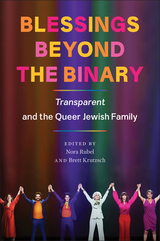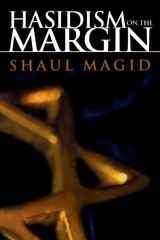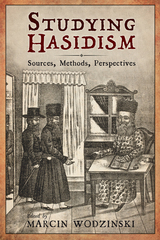
Blessings Beyond the Binary: Transparent and the Queer Jewish Family brings together leading scholars to analyze and offer commentary on what scholar Josh Lambert calls, “the most important work of Jewish culture of the century so far.” The book explores the show’s depiction of Jewish life, religion, and history, as well as Transparent’s scandals, criticisms, and how it fits and diverges from today’s transgender and queer politics.
The first book to focus on Transparent, Blessings Beyond the Binary offers a rich analysis of the groundbreaking series and its connections to contemporary queer, trans, and Jewish life.

Hasidism on the Margin explores one of the most provocative and radical traditions of Hasidic thought, the school of Izbica and Radzin that Rabbi Gershon Henokh originated in nineteenth-century Poland. Shaul Magid traces the intellectual history of this strand of Judaism from medieval Jewish philosophy through centuries of Kabbalistic texts to the nineteenth century and into the present. He contextualizes the Hasidism of Izbica-Radzin in the larger philosophy and history of religions and provides a model for inquiry into other forms of Hasidism.

Jewish ecological discourse has shown that Judaism harbors deep concern for the well-being of the natural world. However, the movement has not articulated a Jewish theology of nature, nor has it submitted the sources of Judaism to a systematic, philosophical examination.
This volume intends to contribute to the nascent discourse on Judaism and ecology by clarifying diverse conceptions of nature in Jewish thought and by using the insights of Judaism to formulate a constructive Jewish theology of nature. The twenty-one contributors consider the Bible and rabbinic literature, examine the relationship between the doctrine of creation and the doctrine of revelation in the context of natural law, and wrestle with questions of nature and morality. They look at nature in the Jewish mystical tradition, and they face the challenges to Jewish environmental activism caused by the tension between the secular nature of the environmental discourse and Jewish religious commitments.

READERS
Browse our collection.
PUBLISHERS
See BiblioVault's publisher services.
STUDENT SERVICES
Files for college accessibility offices.
UChicago Accessibility Resources
home | accessibility | search | about | contact us
BiblioVault ® 2001 - 2024
The University of Chicago Press









